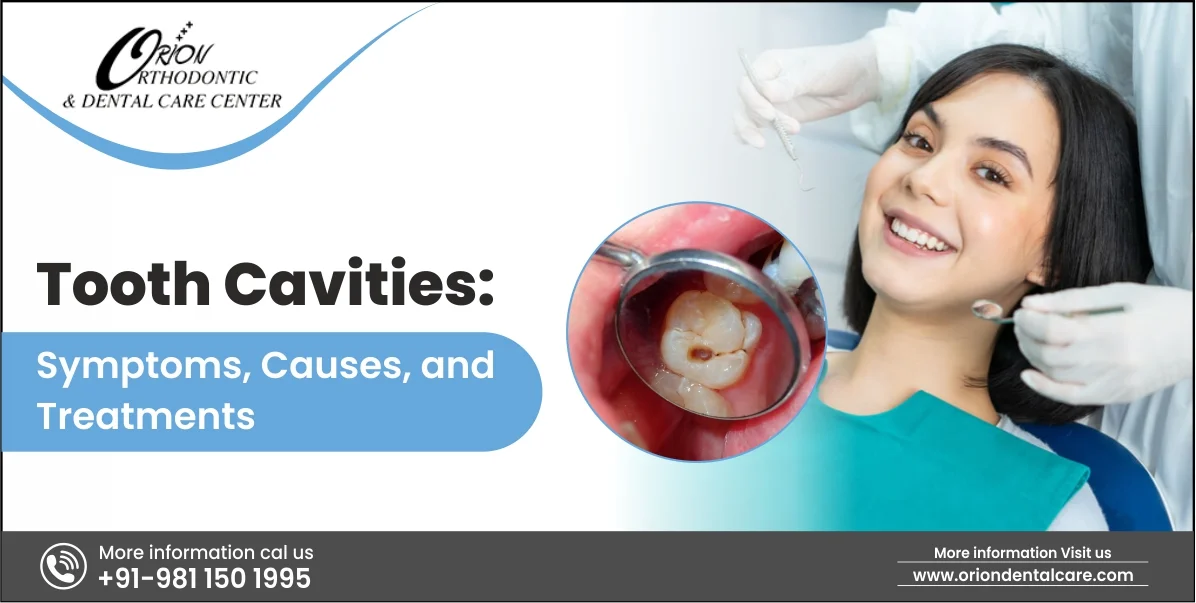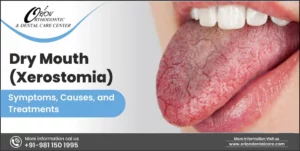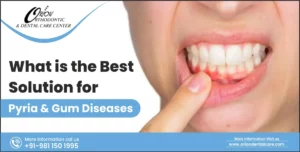In addition to making a person smile confidently, a healthy mouth is essential for preventing many fundamental health problems. We’ll talk about one particular area of oral health in this blog post: tooth cavities. Maintaining a bright and healthy smile requires an understanding of its importance in relation to maintaining overall well-being. It becomes essential to investigate their symptoms, causes, and practical remedies to keep a strong, bright grin. Let’s explore the useful features of knowing about, avoiding, and treating dental cavities, offering insightful advice for preserving the best possible oral health.
Understanding Tooth Cavities
Tooth cavities, sometimes referred to as decay or dental caries, are a widespread oral health problem that many people face. Plaque, a sticky bacterial coating, mixes with the sugars and carbohydrates in our meals to form cavities.
Acids produced by this reaction damage the tooth’s enamel, which serves as its outermost layer of protection. If dental care is neglected, these acids can gradually destroy enamel, resulting in tiny holes or cavities.
Tooth cavities have a major effect on oral health. At first, cavities might not show any symptoms at all, but as they become worse, people could feel discomfort when they chew, be sensitive to both hot or cold food, or even see pits or holes in their teeth. Cavities can go deeper into teeth and touch the nerve, which might result in more intense infection and discomfort if treatment is not received.
Maintaining proper oral hygiene habits, such as consistent brushing, flossing, and dental examinations, is essential to preventing tooth cavities. Maintaining an eating regimen that is lower in acids and sweet items also helps avoid cavities. People who are aware of the fundamentals of tooth cavities are better equipped to protect their dental wellness by taking preventative measures.
Signs and Symptoms Tooth Cavities
To preserve the best possible oral health, early identification and timely action are essential for recognising the symptoms and signs of dental cavities.
- Since cavities may not often cause any symptoms at first, routine dental exams are essential for early detection.
- Common symptoms of decay include localised pain, sensitivity to heat or cold triggers, and pain during chewing.
- Cavities may also be indicated by visible signs on the tooth’s surface, such as dark pits, stains, or white areas.
- Advanced decay may occasionally be linked to poor breath or a bad taste on the tongue. Frequent dental checkups and self-examinations are essential for detecting these indications.
To stop additional harm and a requirement for more involved dental procedures, early identification is essential. If you see any of such symptoms, you need to schedule a comprehensive checkup with a dentist quickly. Stressing how important it is to identify these signs promotes preventative dental care, making prompt treatment easier and maintaining overall oral health.
Causes of Tooth Cavities
Dental caries are caused by some variables, the main one is poor oral hygiene.
- Too little brushing and flossing causes plaque, a sticky bacterial film, to build up on teeth. These microorganisms create acids that damage tooth enamel and cause cavities.
- Food decisions, particularly those with excessive sugar and consumption of carbohydrates, increase the risk by feeding bacterial activity.
- People’s risk of cavities is influenced by hereditary factors as well.
- Though certain individuals could be more likely to have cavities even with regular dental care, some could possess an inherent resilience to decay.
Having a thorough understanding of these factors highlights the need for a balanced diet, routine dental checkups, and good oral hygiene habits as part of an all-encompassing oral care regimen to reduce the likelihood of tooth cavities.
Treatment Options for Tooth Cavities
Based on the extent of the deterioration, there are many treatments for treating dental cavities:
Dental Filling
The most typical method of treating small cavities is to remove the rotted area and replace the empty space with silver or gold amalgam or composite resin.
Dental Crowns
A dental crown could be advised in situations when there is more significant decay or damage. To rebuild the form and functionality of the damaged tooth, a crown built to order is placed on top of it.
Root Canal Treatment
Root canal therapy could be required when the decay gets to the tooth’s pulp, resulting in discomfort and infection. To stop more infection, the diseased pulp must be removed, the canal must be cleaned, and the canal must be sealed.
Dental inlays and onlays
are fillings that are indirect and preserve more of the original tooth structure than crowns while providing a more complete repair than standard fillings.
Fluoride Treatment
Fluoride therapies can be suggested in some circumstances, particularly for cavities that are in the initial phases of decay, to assist in remineralizing enamel and stopping the initial phases of decay.
Knowing about these available treatments emphasises how crucial it is to have routine dental checkups to discover problems early, provide prompt care, and maintain general oral health.
Preventing Dental Cavities
Tooth cavities may be avoided mostly by practising proper oral hygiene.
- Use fluoride toothpaste for brushing your teeth twice a day, and floss in between your teeth.
- Eat fewer citric and sweet meals and beverages since they can cause cavities.
- To support general oral health, choose a diet that is well-balanced and high in veggies, fruits, and dairy goods.
- For the early identification and management of any possible cavities, routine dental checkups are essential. Dentists can perform thorough cleanings, provide fluoride treatments, and provide individualised guidance on preserving the best possible dental health.
You may greatly lower your chance of getting dental cavities and have a cavity-free smile by following these behaviours and maintaining regular dental checkups.
Conclusion
Tooth cavities must be avoided by practising preventive oral hygiene. People can protect their oral health by practising proper oral care, eating healthfully, and getting routine dental examinations. Never forget that maintaining your smile for many years to come just requires a small amount of work now.
Are you prepared to protect your smile? Make an appointment with Orion Orthodontic & Dental Care Centre for a check-up. To prevent and cure tooth cavities, our knowledgeable staff provides proactive dental care. Make the first move to a bright, without-cavities smile. At Orion Orthodontic & Dental Care Centre, a healthier, brighter smile is waiting for you. Make an appointment right away!




